So, you’ve decided to be a filmmaker. You are eager to create worlds, produce magic, and tell a story. Moreover, you want to make money from it, a career path, and a lifetime profession. Should you go to film school? Well, it depends. Film schools have some advantages and disadvantages. However, it’s all a question of what fits you best. Read on to find out.
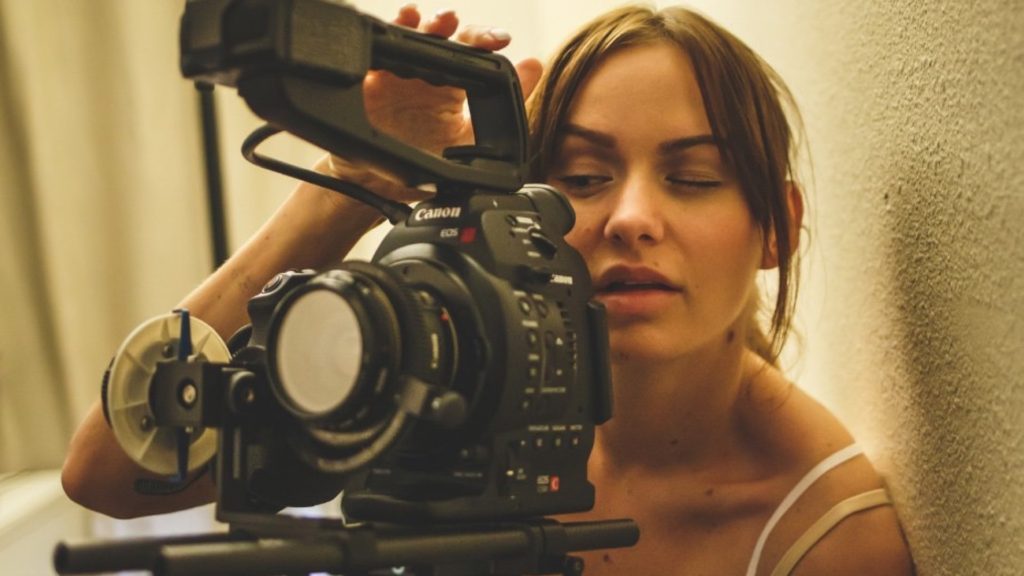
From my personal perspective
I never went to film school. I studied a whole different discipline (own a Master’s degree in Biochemistry). Last year, the Filmmaking faculty at Tel-Aviv University offered me a 5-years program to Ph.D. in Filmmaking, based on the filmmaking experience that I’ve been gathered over the years, plus my academic background. At first, I was excited because I imagined the numerous films I’m going to make during my Ph.D. However, it appears that the third degree of filmmaking is 100% theoretical and…0% practical. You won’t be doing any shooting during your academic research, but analyzing a micro-niche related to the history of the motion picture, or other ultra-sophisticated theory with endless discussions. Thanks but no thanks.
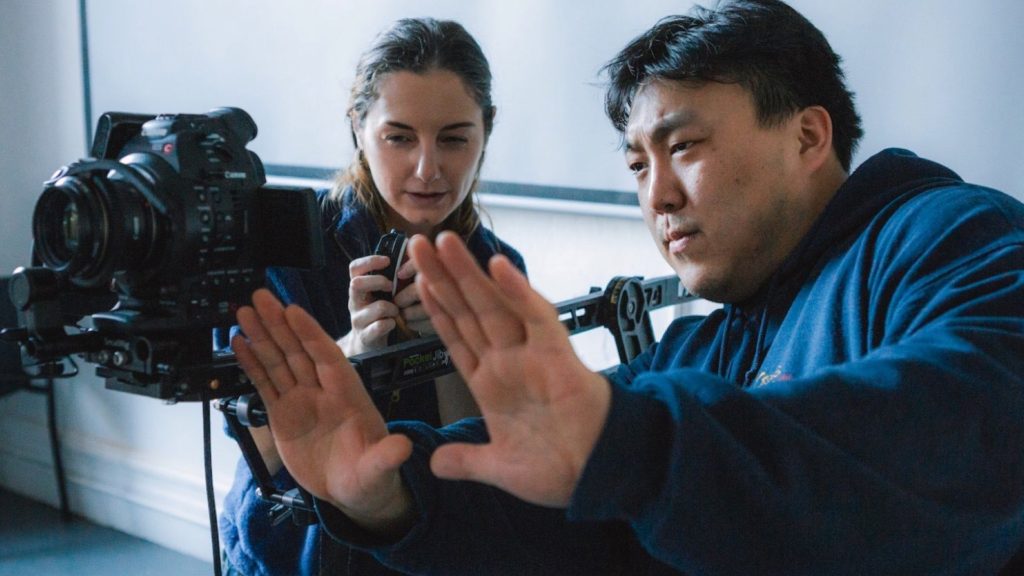
Check out the teacher’s IMDB, and see if the teachers will be able to help you on your path to achieving your goals.
Film schools: Pros and cons
Ph.D. aside, other filmmaking programs offer some solid practical approaches. Bachelor’s and also a Master’s degrees (without a thesis) can grant you vast experience in filmmaking, plus the options of building connections, which is supposed to be an integral part of the academic pathway. But the question remains. Do you really need it? Today we live in the era where anyone can buy a camera and start shooting, and thus accumulating experience, expertise, and even connections without being one day in film school. Nevertheless, film schools have some decent advantages. Let’s read what Kennedy Randall from InFocus Film School (Vancouver’s top cinematic arts training institution) has to say. Kennedy sheds light on the goals of film schools, the concept behind them, programs, academic routes, and most importantly, how to pick one that fits you best.
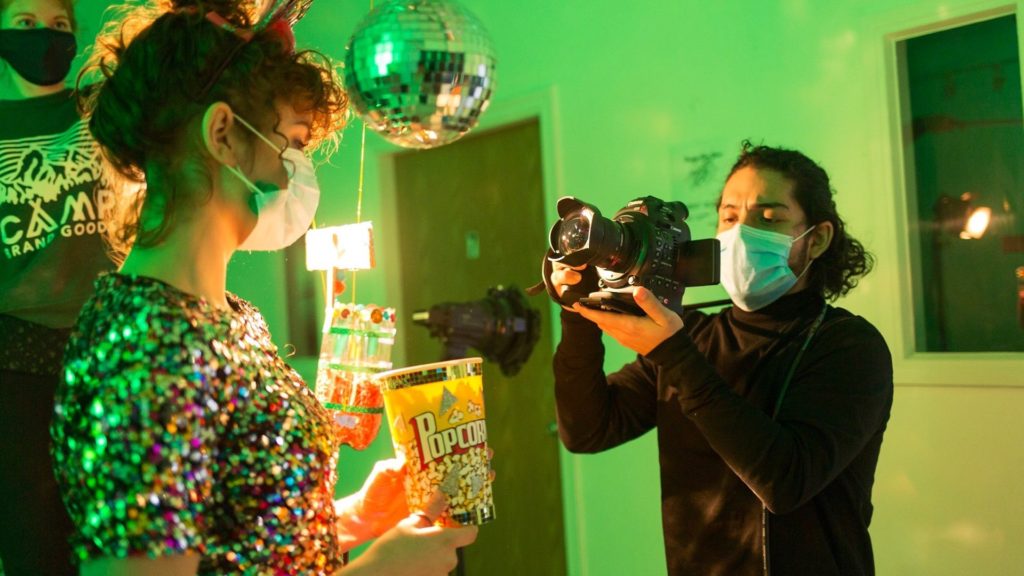
Picking the best film course for You
With a new school year approaching, film students often weigh their options on what will be the best film course for their career and goals. Whether you want to be in film production, 3D animation, visual effects, or screenwriting, there are an overwhelming amount of film course options out there for you. A good place to start is narrowing down what you want from your program. Here are four factors that will help you decide what type of film school best suits your goals.
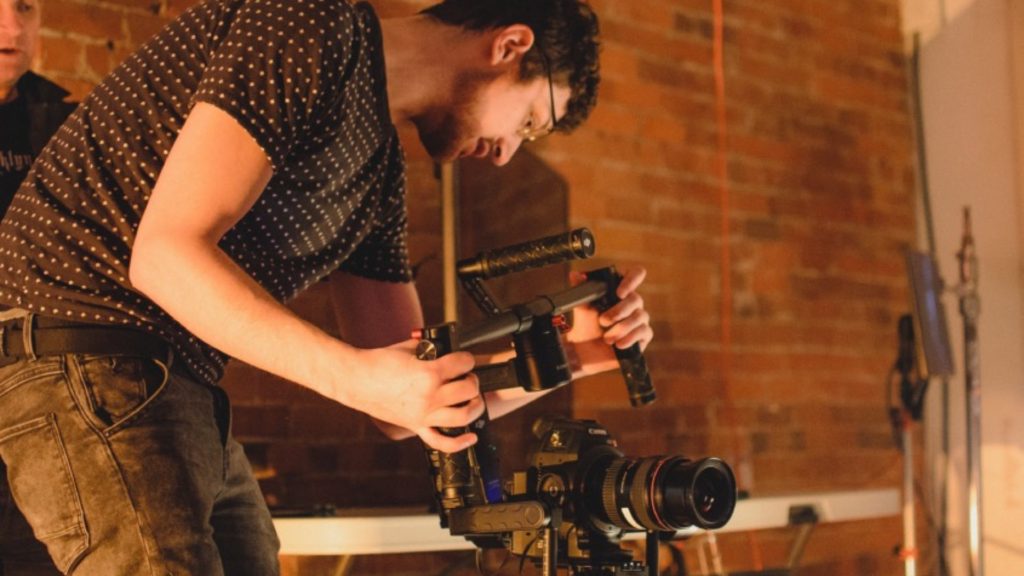
if you are a huge film buff, four-year film programs may be for you, as you get to learn more about the theoretical aspects of filmmaking before you start making films. If you are eager to grab a camera and jump right into filmmaking, a 12-month program may be for you!
Length of Study
Film programs vary in length, ranging from 6-12 months to four years.
Four-year programs
After a year or two of studying film theory, reading up on cinema history, and collaborative discussions with your peers will give you a deeper understanding of the art of cinema. Longer programs are ideal for cinephiles who want to be really in tune with film theory and don’t mind waiting a year or two before making their own films.
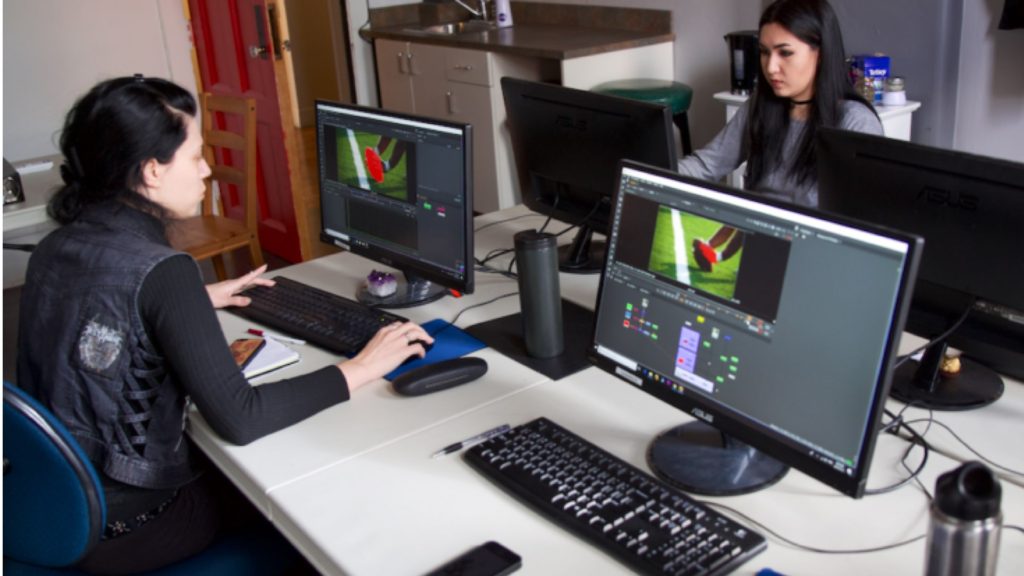
1-year program
A one-year program is specifically designed to teach you all the technical and creative skills through hands-on learning in a quick, compact year. Most one-year programs will have you holding a camera on day one and teach you theory throughout. This style of program is ideal for anyone who wants to build a strong, well-rounded filmmaking foundation, build relevant connections, and find work in the industry right away.
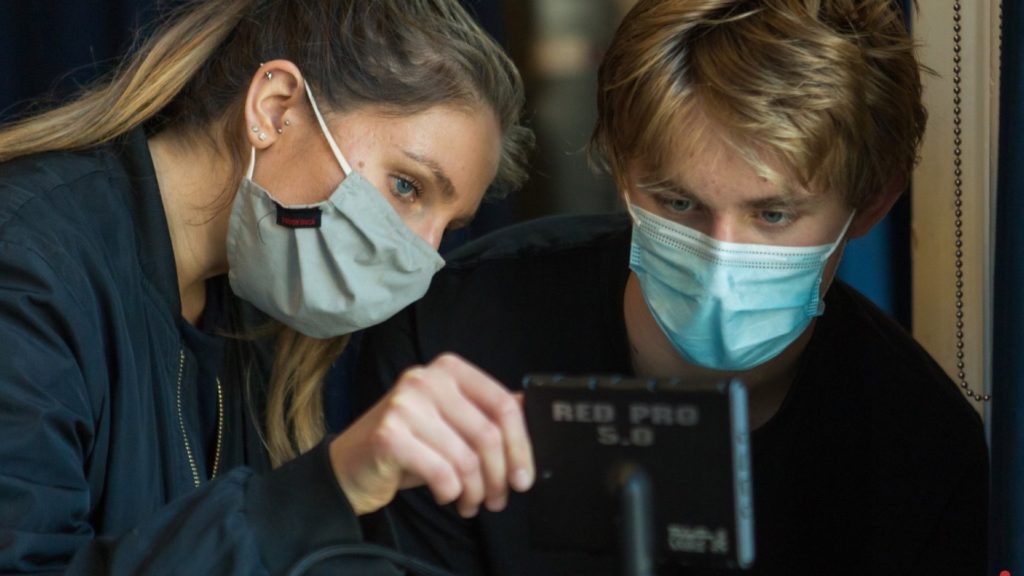
Are you someone who enjoys learning through lectures? Or are you someone who needs to hold something in your hands to truly understand what you are doing?
To sum it up, if you are a huge film buff, four-year film programs may be for you, as you get to learn more about the theoretical aspects of filmmaking before you start making films. If you are eager to grab a camera and jump right into filmmaking, a 12-month program may be for you!
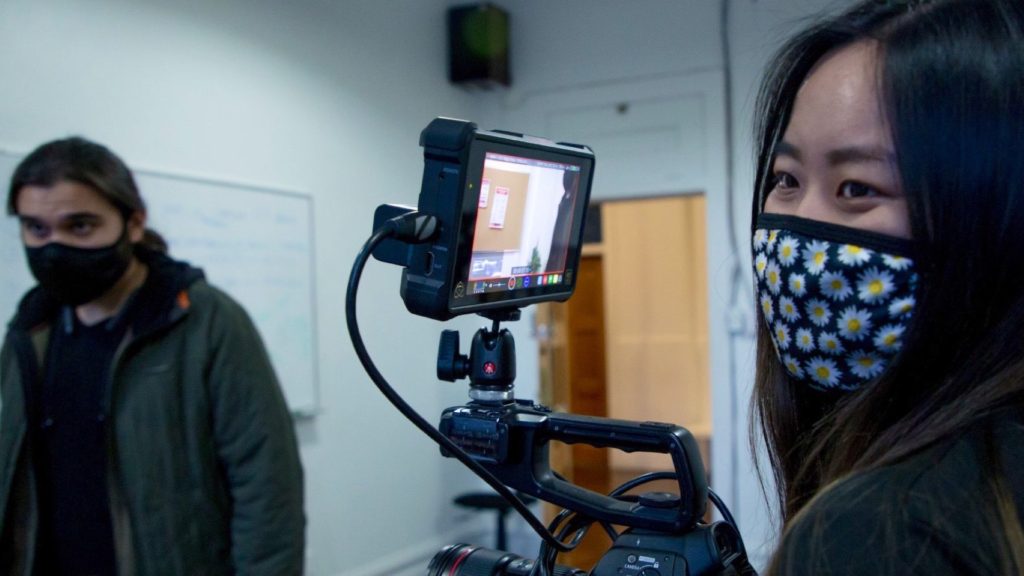
Hands-on Learning
Film production and cinematic education are inherently hands-on experiences. You learn by creating. At this point, it’s best for you to decide what kind of learner you are and which school best fits your needs. Are you someone who enjoys learning through lectures? Or are you someone who needs to hold something in your hands to truly understand what you are doing? While most film schools will eventually get you working with gear, it’s best to make sure your program will focus on what you are most interested in? For example, some programs will focus more on theory, whereas others may focus more on how to use the gear. Some might be a strong balance of both.
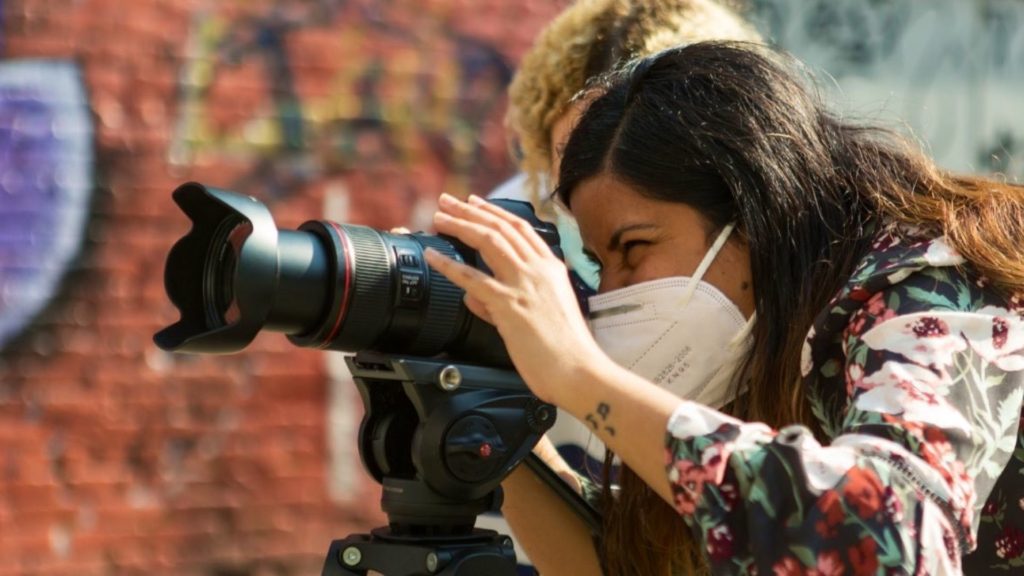
Some programs will focus more on theory, whereas others may focus more on how to use the gear. Some might be a strong balance of both.
Industry Connections
Generally, while looking for the best film course, you should be considering, are my teachers currently prominent and involved in their respective fields? Working with industry professionals allows you to learn from the best and develop the skills and connections necessary to reach your professional goals post-graduation. Learning from professors that are currently in the film industry allows you to master the current techniques that are shaping the screen today. When researching prospective film schools, a good tip would be to do research about your school, check out the teacher’s IMDB, and see if the teachers will be able to help you on your path to achieving your goals. The teachers that are a part of your film program are not only going to be shaping your education, but also they provide an invaluable chance to build relationships that lead to future opportunities in your chosen industry.
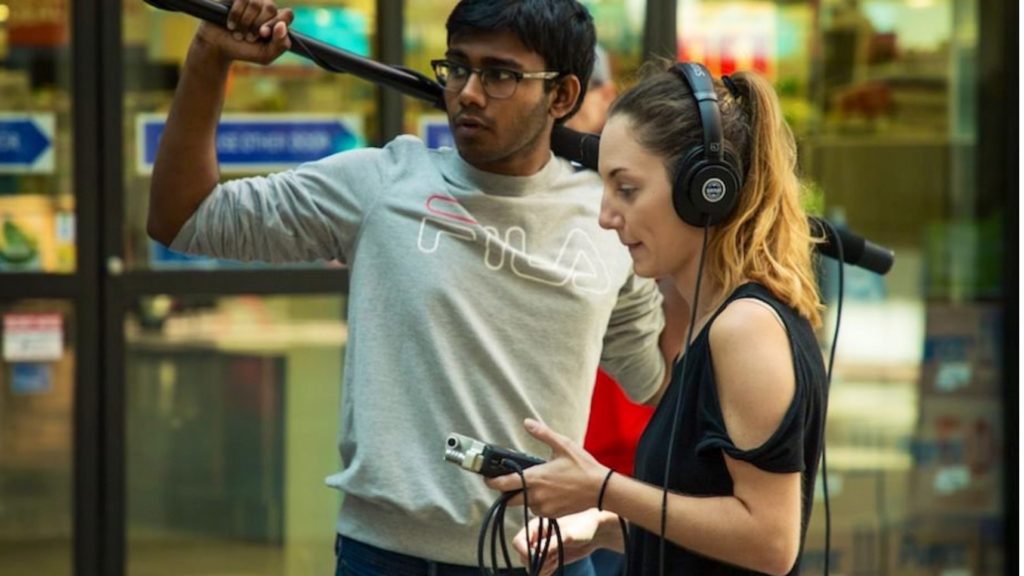
The social media platforms of schools you are researching will also provide a sense of how programs and instructors lead their students to succeed.
Student Success
At the end of the day, what matters most is you, and finding the best film course that will lead you to personal and professional success. Whether that is writing the screenplay you’ve always thought about or creating your first motion picture, your chosen film program will help your dreams begin to take shape. To see how various school’s alumni fare in terms of student success, check out film school’s websites. You will find student testimonials that will give you insightful, first-hand perspectives into various programs. The social media platforms of schools you are researching will also provide a sense of how programs and instructors lead their students to succeed.
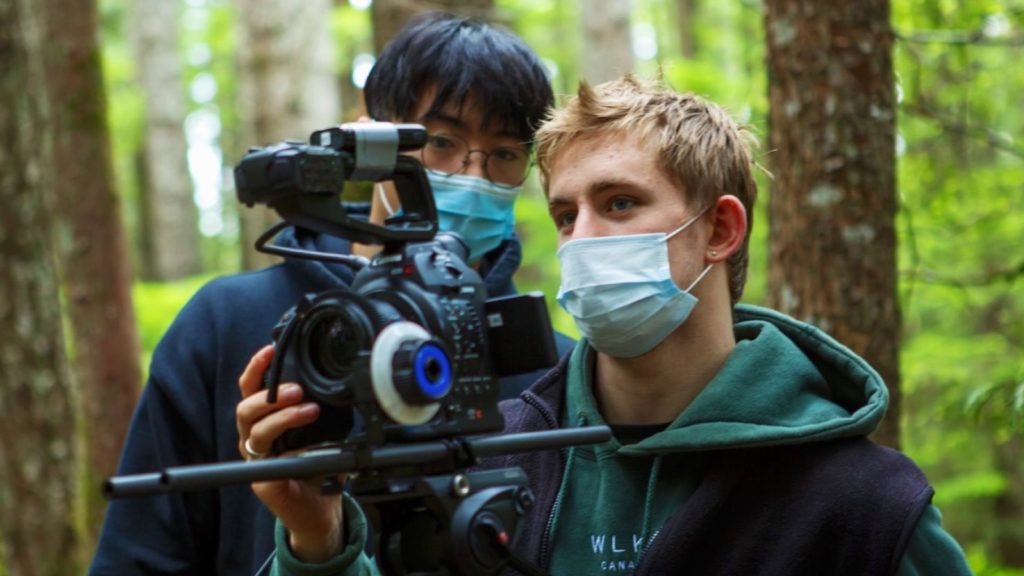
There are numerous acclaimed cinematographer, directors and industry professionals that didn’t go/graduate film school. Nowadays, the educational options and platforms especially online, are endless.
Final thoughts
There are numerous acclaimed cinematographer, directors and industry professionals that didn’t go/graduate film school. Nowadays, the educational options and platforms especially online, are endless. REDucation (an educational program by RED Digital Cinema) ARRI Academy, Shane Hurlbut’s Academy, MZed (educational platform for creators), ASC MasterClasses, and the list goes on and on. These are examples of high-quality filmmaking educational resources that we wrote and reviewed (search for them on our site). Also, there’re many more that we’re not familiar with. The information is there, sometimes it’s free, sometimes you’ll have to pay a few pennies. But it’s there and you can access it from your living room. There’s no doubt that you can get a proper film education from these online assets. Furthermore, a camera and a laptop can get you far, in many aspects. Your success will be derived from your eagerness, passion, meticulousness, and desire to learn, be open-minded, and hard worker. Those who seek some backing, mental support, direction, and formal education (which is a MUST), might consider going to film school. Eventually, it’s a personal decision. Film-School: Yes, or No? It is up to you, and what fits you best.
Film-School: Yes, or No? Let’s know your thoughts in the comments section below.

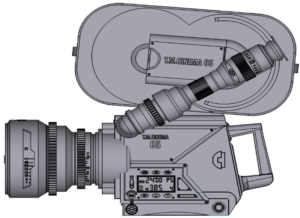
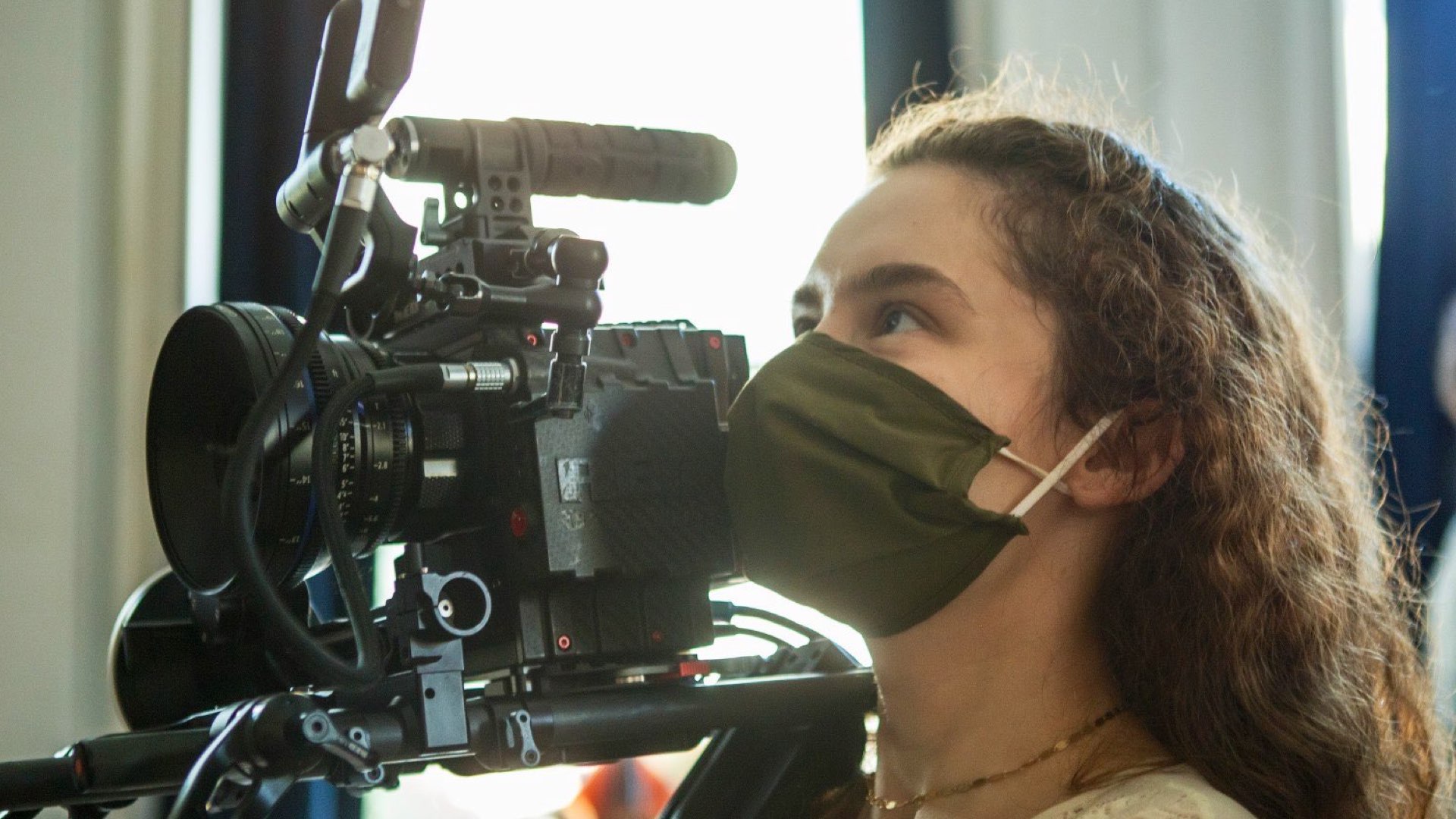
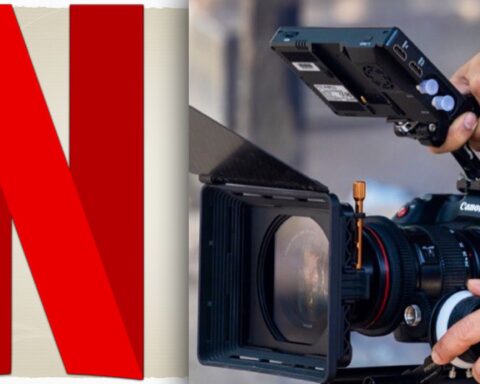






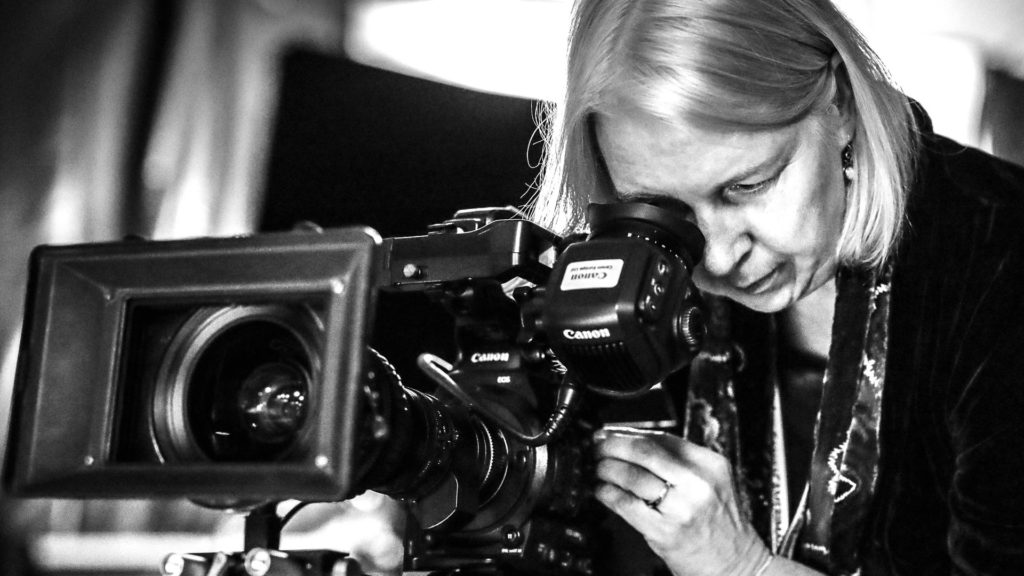
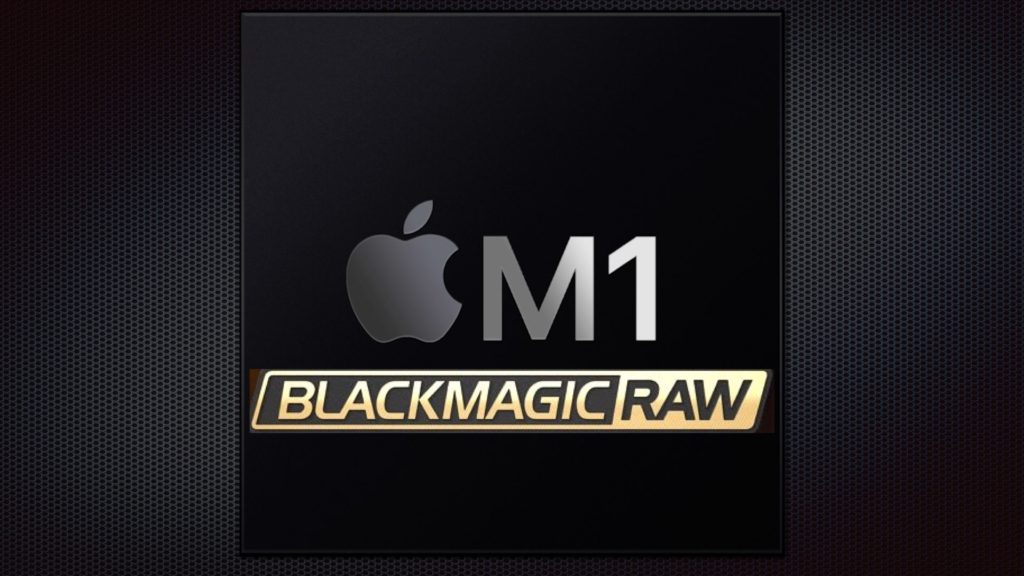
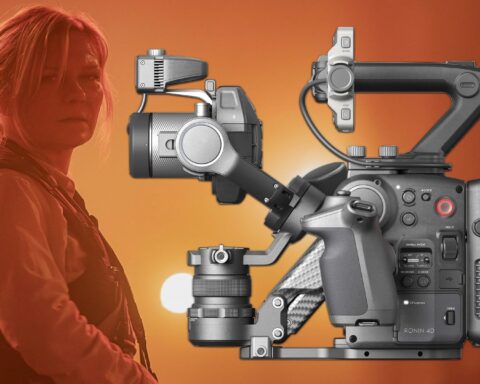


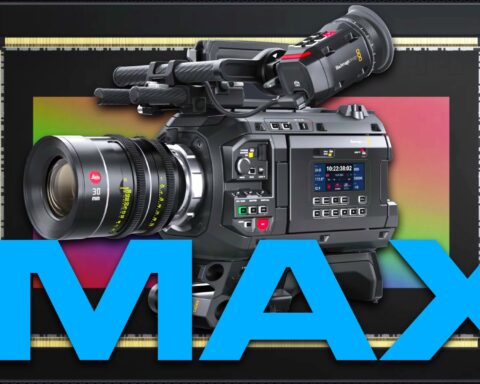
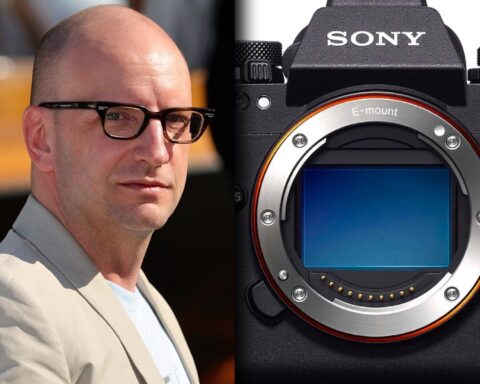


I wrote a blog article about this on the photography side of things. Whether going to school for photography is worthwhile or not. It can be or not. Depends on the person and their goals. My conclusion was this: Is it worth the $60k+ for the networking you’ll do? Because, you can learn everything about the trade for free online and experience. Honestly, it seems that the people who get the great, corporate and commercial gigs went to school for their trade.
But then again, Quentin never went to film school….